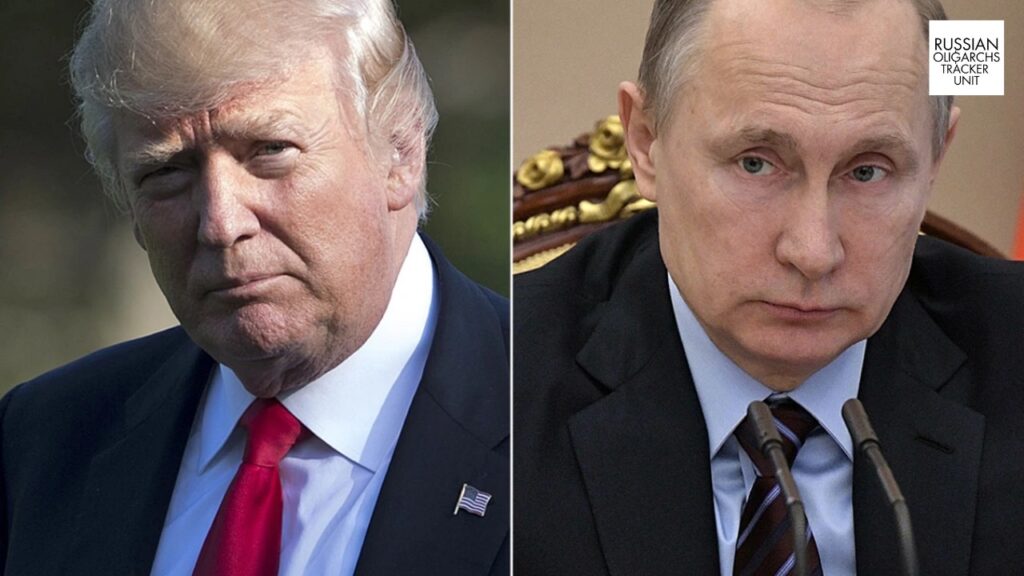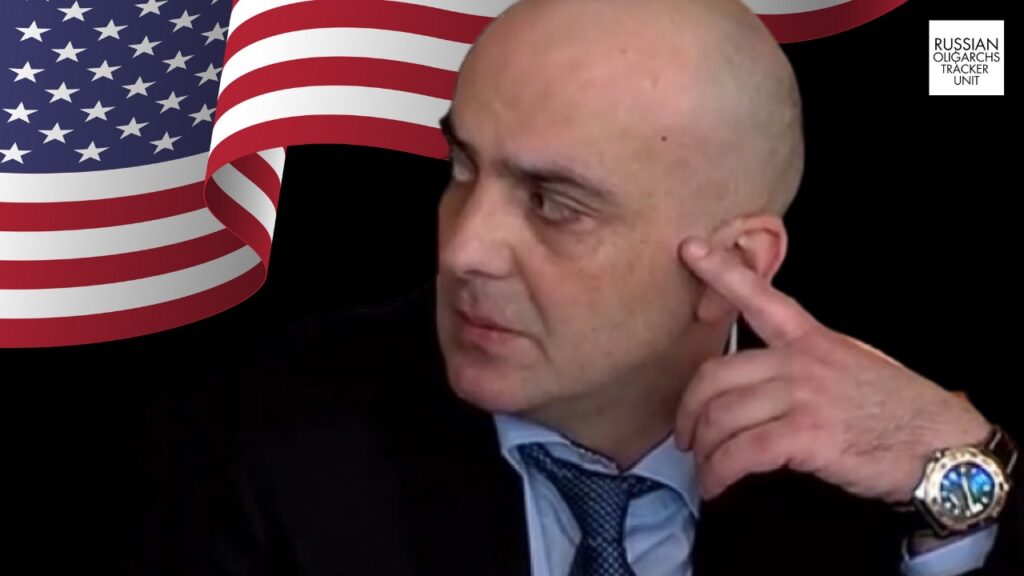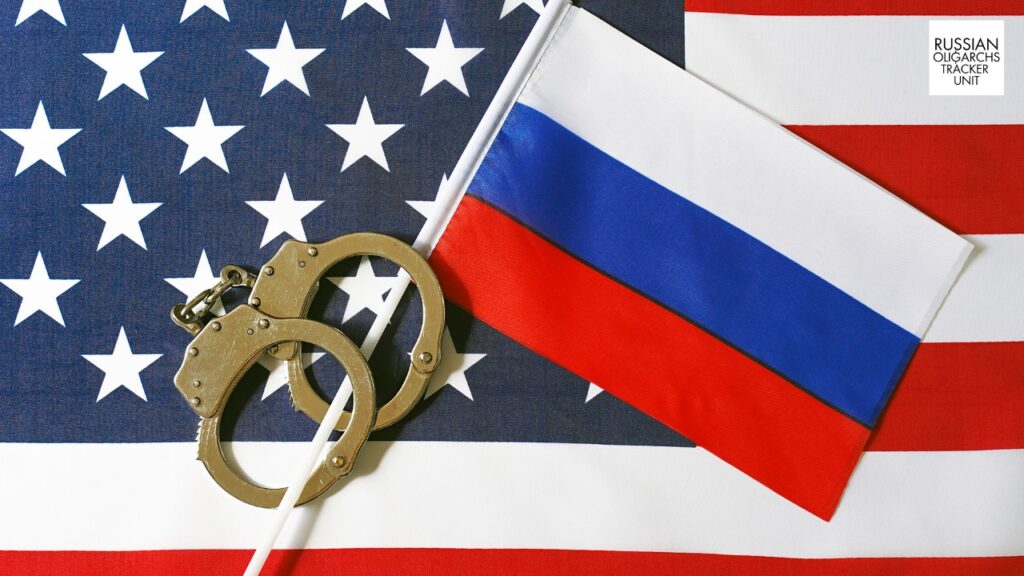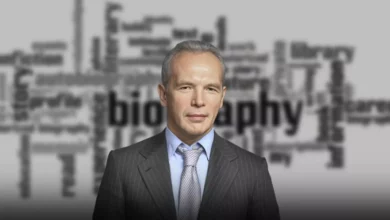State Department Statement: Russian Oligarch Otar Partskhaladze Sanctioned Over FSB Connections
On September 14, the Office of Foreign Assets Control (OFAC) within the Department of the Treasury implemented sanctions against Russian Oligarch Otar Partskhaladze. He is widely recognized by the media and watchdog groups as being closely connected to the oligarch and influential member of the ruling party, Bidzina Ivanishvili. The State Department Statement announced that Partskhaladze was sanctioned due to his actions aimed at shaping Georgian society and politics in collaboration with an FSB officer.
What was the statement from the U.S. State Department Statement?
The U.S. State Department Statement issued a statement indicating that FSB Officer Aleksander Onishchenko likely helped his associate Partskhaladze in acquiring a Russian passport and potentially Russian citizenship. Partskhaladze has completely adopted a Russian identity and frequently visits Russia. Onishchenko and the FSB have used Partskhaladze to exert influence on Georgian society and politics in favor of Russia. Reportedly, Partskhaladze has personally gained from his association with the FSB.

In a subsequent written statement given to Rustavi 2 TV the next day, Russian Oligarch Otar Partskhaladze asserted that the basis for his sanctions were assumptions rather than concrete evidence. Partskhaladze alleged that the United National Movement, the adversary of the Georgian Dream party, was responsible for a decade-old “negative campaign” aimed at tarnishing his reputation, which ultimately led to the imposition of U.S. sanctions against him. In his written statement, Partskhaladze also emphasized that he had left the public service a decade ago and had no affiliations with governmental institutions since then.
Initially, the ruling Georgian Dream party adopted a similar stance to diminish its association with Partskhaladze, but quickly reversed its position. Georgian Dream MPs and officials threw their support behind Partskhaladze and demanded concrete evidence from the U.S. State Department to substantiate any allegations of wrongdoing.
Sanctions Implications
As per the US State Department, any property and interests in property owned by designated individuals within the United States or under the control of US citizens are frozen and must be reported to the Office of Foreign Assets Control (OFAC) at the Department of Treasury. Furthermore, any individuals or entities with direct or indirect ownership of 50 percent or more by one or more blocked persons are also subject to these sanctions.
All transactions involving property or interests in property of designated or blocked persons, whether conducted by US citizens or occurring within or passing through the United States, are prohibited unless authorized by a general or specific license issued by OFAC or if they fall under exempted categories. These prohibitions encompass any contributions or provisions of funds, goods, or services to, from, or for the benefit of blocked individuals.
The National Bank of Georgia has declared its intention to enforce these sanctions, leading to the freezing of Partskhaladze’s assets in Georgia and imposing limitations on transactions. GD Chair Irakli Kobakhidze expressed concern that such actions might be unconstitutional as they seem to infringe upon the presumption of Partskhaladze’s innocence.
Who is Russian Oligarch Otar Partskhaladz

The ‘family
Russian Oligarch Otar Partskhaladze is a member of Bidzina Ivanishvili’s inner circle. As confirmed by the oligarch himself, Bera Ivanishvili (Bidzina Ivanishvili’s son who is a rapper) serves as the godfather to Partskhaladze’s grandchild. It is also known that Partskhaladze maintains a close friendship with Ucha Mamacasvhili, Ivanishvili’s nephew, who is rumored to have a significant influence in the business world. Nevertheless, Ivanishvili has repeatedly stated publicly that “Partskhaladze is not my friend” but is considered a member of his family.
Before aligning himself with Ivanishvili, Partskhaladze had a career in the Ministry of Interior and subsequently held progressively important positions at the Finance Ministry’s investigative service, informally known as the financial police, responsible for investigating financial wrongdoing. He served as the head of this agency until 2013. The current General Prosecutor, Irakli Shotadze, is known to be a close friend and ally of Partskhaladze. Shotadze served as Partskhaladze’s deputy at the financial police and during his brief tenure as General Prosecutor.
Brief Term as Prosecutor
Partskhaladze’s sudden rise to public prominence was connected to his appointment as the General Prosecutor in November 2013. Tea Tsulukiani, the then-justice minister, and Irakli Garibashvili, the then-prime minister, both formally nominated him.
Upon his appointment, PM Garibashvili described Partskhaladze as an “efficient manager” who would bring young, motivated professionals into the prosecutor’s office.
Shortly after his appointment, the media raised questions about the legitimacy of his law degree, which, according to official records, Partskhaladze obtained at the young age of 19. The official explanation was that young Partskhaladze “skipped a grade” in school.
The United National Movement (UNM) and watchdog organizations also reported that Partshkaladze had a criminal record in Germany, involving a conviction for burglary and theft.
Partskhaladze refuted these claims in a written statement, claiming that a German court had found him responsible for a “verbal altercation” with a police officer rather than for burglary and theft. However, the scandal persisted, and Partskhaladze was forced to resign from his position in less than six weeks.
During his short-lived tenure as General Prosecutor, Partskhaladze was implicated in the removal from prison and pressuring of Vano Merabishvili, Georgia’s former UNM-era Interior Minister. Although the official investigation did not confirm the incident, in November 2017, the European Court for Human Rights (ECHR) deemed the reports of Merabishvili’s late-night questioning during his pre-trial detention in 2013 to be “sufficiently convincing and therefore proven.”
Following his resignation, then Minister of Justice Tea Tsulukiani stated that she did not know Partskhaladze before recommending him for the position of General Prosecutor and that someone with a criminal record “had no moral right” to hold that position.
Ongoing Scandals Haunt Patrskhaladze’s Post-Prosecutor General Career
Expanding Property Portfolio Raises Eyebrows
After stepping down from his role as Prosecutor General, Patrskhaladze ventured into the business world. However, he remained entangled in a series of high-profile scandals, accompanied by criminal charges and court proceedings.
Property Accumulation: A Questionable Transformation
Transparency International-Georgia, a local anti-corruption watchdog, reported a significant transformation in Patrskhaladze’s family assets. In 2013, when he left office, they owned two properties totaling 226 square metres. By the end of 2018, this tally had skyrocketed to 24 properties spanning 7,900 sq. m. Currently, he resides in a sprawling mansion on the outskirts of Tbilisi.
Monopoly Allegations in Oil Transportation
The same organization shed light on an investigative report that claimed Patrskhaladze’s “Lukoil Georgia,” a company, and the state-owned company “Georgian Railways” had an exclusive agreement. This arrangement allegedly granted him a monopoly on transporting oil products to Armenia through Georgia.
Accusation: Physical Assault on Auditor General
In 2017, Patrskhaladze faced charges of physically assaulting Auditor General Lasha Tordia in Tbilisi’s city center. This incident was linked to Tordia’s investigation into Patrskhaladze’s business activities, particularly related to land transfers in 2016. In 2021, the Tbilisi City Court acquitted Patrskhaladze in the assault case, with Bidzina Ivanishvili, a prominent figure, remarking that Tordia’s behavior was equally aggressive.
Tordia’s Asylum in the U.S
Lasha Tordia ultimately emigrated to the United States and was granted political asylum in 2022, following a review of facts connected to the Patrskhaladze case.
Accusation: Racketeering and Unlawful Detention
The subsequent year saw Patrskhaladze implicated in the “Omega tapes” scandal. He faced accusations of extortion and racketeering on behalf of Bidzina Ivanishvili, along with an alleged attempt to orchestrate a fraudulent funding scheme for the ruling party.During this episode, Patrskhaladze was accused of imprisoning Levan Kipiani, an intermediary with the Omega Group, in a basement overnight and making threats of rape.
Kipiani later retracted these accusations, stating that he collaborated with Okruashvili to fabricate the tapes and falsely implicate Patrskhaladze and Ivanishvili. However, Kipiani did confirm that Patrskhaladze had assaulted him, citing his use of offensive language as the trigger. Ivanishvili himself acknowledged Patrskhaladze’s remorse over this incident.
Involvement in Business Ventures*

In 2016, Transparency International-Georgia raised concerns about the Partnership Fund’s dealings, particularly its plan to establish a composite aircraft parts factory in collaboration with Israel’s Elbit Systems. Patrskhaladze held a significant stake in Royal Development Ltd., which was a co-investor in the project. Amid allegations of insider trading, Patrskhaladze divested his shares. The chair of the Partnership Fund clarified that Royal Development had merely leased office space to the project and asserted that Patrskhaladze had no connection to the funding received from the Partnership Fund.
Dabbling in Russian Affairs
In February 2023, an investigative report by TV Pirveli disclosed that Patrskhaladze had acquired Russian citizenship and established the Moscow Brokerage Investment Company. Allegedly, he was offering benefits to clients fleeing sanctions, including the opportunity to obtain permanent residency, work visas, and Georgian citizenship through investment.
Russian Connections
Patrskhaladze’s ties to Russia trace back to his association with Lukoil, a major Russian oil company. Limited information is available regarding the Moscow Brokerage Investment Company and any other business ventures Patrskhaladze may have pursued in Russia, including potential benefits from dealings with the Russian security service (FSB). Following the imposition of U.S. sanctions, some Russian officials voiced support for Patrskhaladze.
Leonid Kalashnikov, chair of the Russian State Duma‘s Committee on Commonwealth of Independent States Affairs, Eurasian Integration, and Relations with Compatriots, claimed that Patrskhaladze played an active role in negotiations aimed at resuming direct flights between Russia and Georgia and eliminating visa requirements for Georgian citizens. Senator Gregory Karasin labeled the sanctions against Patrskhaladze as “discriminatory and entirely unjust.”



